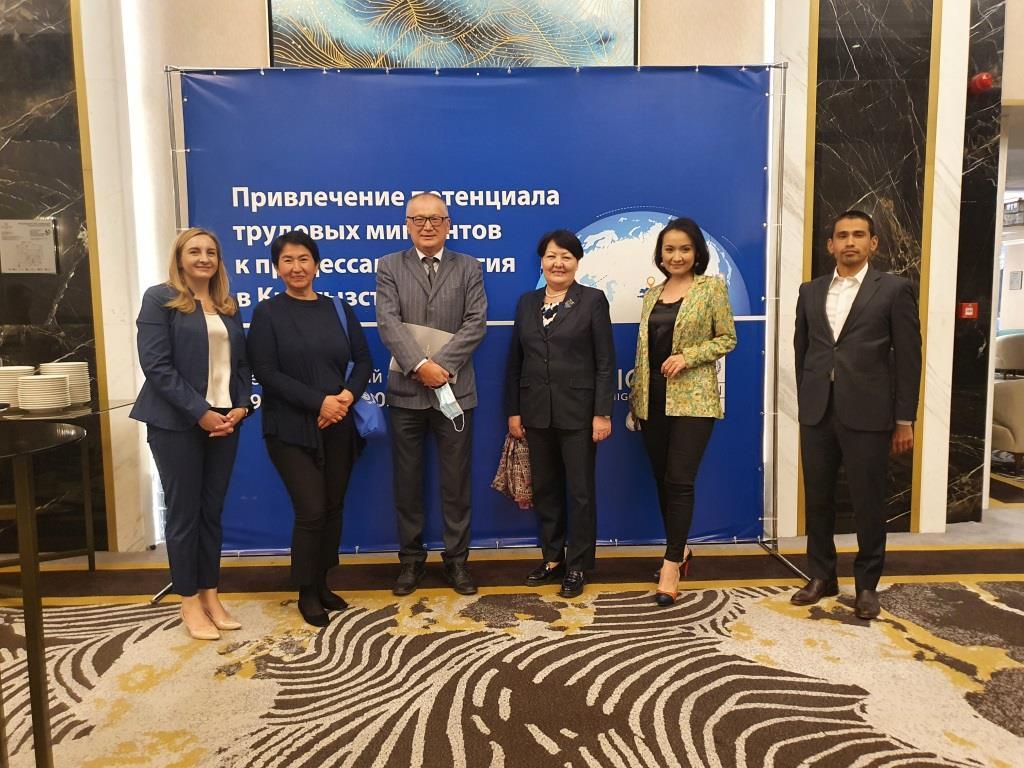Engaging the Potential of Labour Migrants in Development Processes in Kyrgyzstan.
September 30, 2021, 09:10
On 29 September, the Rosa Otunbayeva Initiative, International Public
Foundation, participated in a round table on
"Engaging the Potential of Labour Migrants in Development Processes in
Kyrgyzstan". The event provided a platform for joint discussion, raising
awareness on the links between migration and development in the country, as well
as for an exchange of views on possible future activities in Kyrgyzstan taking
into account existing challenges and current priorities of the Government.
The round table also presented the new Concept of State Migration Policy
for 2020-2030 developed by the Government of the Kyrgyz Republic with the
support of the IOM (International Labour Organization) and UNDP (United Nations
Development Program).
Tashtanbek Kaimazarov, director of the Department of External Migration
of the Ministry of Foreign Affairs of the Kyrgyz Republic, noted "The
Government of Kyrgyzstan has approved the Migration Policy Concept for
2021-2030, which is a long-term vision for the management of migration
processes. It approves the country's main priorities for solving the migration
problem and directing it towards the benefit of Kyrgyzstan's development. The
strategy document, among other things, underlined the importance of creating a
special assistance program to ensure the return and sustainable reintegration
of returning migrants, especially women and children, as well as people with
negative migration experiences".
Oksana Machuka, UNDP representative in Kyrgyzstan, conducted a roundtable presentation
on assessing the attitude of local
authorities on returning
migrants and their readiness to support them. Also, Bermet Moldobaeva, Head of the IOM office in Kyrgyzstan, presented the
results of the research on mapping the diaspora of Kyrgyzstani citizens,
compatriots and migrants abroad.
The event was jointly organized by UNDP and IOM; it was attended by representatives of
governmental bodies, the non-governmental sector, donors, and the academic community of Kyrgyzstan.